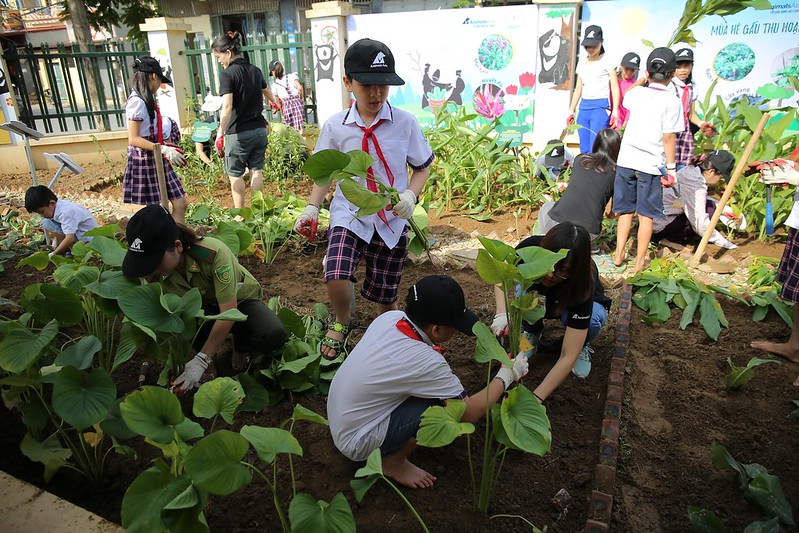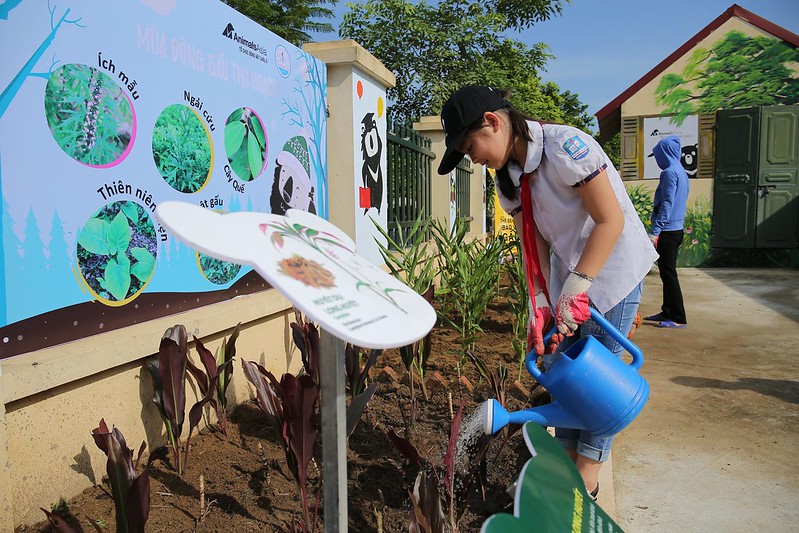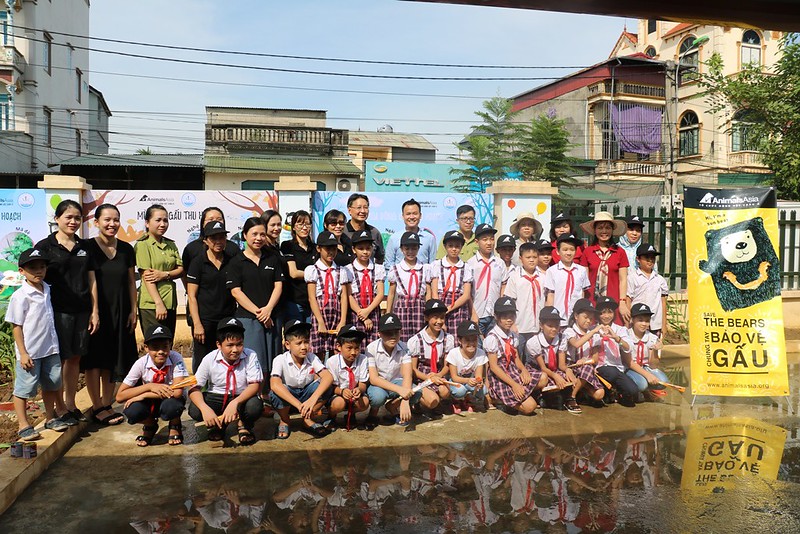Back to school outdoor learning about herbal alternatives to bear bile
20 September 2019
Outdoor learning in school grounds and in community settings has been proven to have a huge impact on young people by giving them greater confidence, renewed pride in their community, stronger motivation towards learning, and a greater sense of belonging and responsibility.
On the morning of August 29, just one week before the new school year officially started, students at Hai Ba Trung Primary school in the middle Phung Thuong, one of Vietnam’s last remaining bear bile hotspots, got hands-on experience of the herbal alternatives to medicines traditionally derived from bears.
With help from Animals Asia’s s partner the Vietnam Forest Department the pupils planted herbs at a botanical garden on the school’s campus. The garden will serve as an educational hub and is decorated with Animals Asia’s colorful and informative posters featuring happy bears, as well as useful information and illustrations about the herbs which can be used as remedies that don’t harm animals.
With the Vietnamese government having formally pledged to end bear bile farming and transfer every bile farm bear to sanctuary by 2022, we’re making every effort to ensure the public is aware of the harm caused by bear bile products and what the herbal alternatives are.
Traditional medicine practitioners in Vietnam have identified at least 32 herbal alternatives to bear bile including cinnamon, frangipani, mugwort and red-rooted sage, capable of treating illnesses such as swelling and joint pains.
The Vietnam Traditional Medicine Association has previously worked with Animals Asia to publish a book of herbal alternatives to bear bile and has publicly vowed to end all prescriptions for bear bile by registered traditional medicine practitioners by 2020.
Animals Asia’s Vietnam Director Tuan Bendixsen said:
“We’re making great progress in winning over the hearts and minds of this community and others like it. As bear bile farming in Vietnam is coming to an end we're working harder than ever to make sure that the local communities are leading the way. The work with school children is particularly important as they are not only the best learners they’re also really good educators in their own right, speaking to their elders about what they’ve learned about herbal remedies and horticulture.”
“The major reason why we focus on herbal alternatives to bear bile is that we want to end bear bile demand for good by promoting herbal alternatives. If we do not carry out this work, even when we end bear farming, people could still look for bear bile elsewhere like from neighbouring countries like Laos, China and Cambodia. Even worse they could continue to hunt wild bears for their gall bladder. So to sustainably end the suffering of bears on farms and protect the bears in the wild, we need both to happen - end bear farming and end the demand for bile.”
Phung Thuong is a village that covers just 6.27km2, but holds 149 bears across 33 households. Many of the children at the school have grown up in households which keep bears or have relatives and neighbours who do.
Animals Asia has been working in Phung Thuong village since 2016 to raise awareness of the cruelty behind bear bile farming while also offering free traditional medicine clinics prescribing herbal alternatives to bear bile. To date, Animals Asia has planted seven gardens of herbal alternatives to bear bile in Vietnam.
Vietnam Director Tuan added:
“It's great to see these young people embracing outdoor learning and a kinder approach to bears. The experience of getting their hands dirty to plant a garden is really fun and transformative, especially as it links to the children’s own compassion for animals and appreciation for nature.”
Together we can end bear bile farming for good and raise awareness of herbal alternatives. Donate now.
BACK











